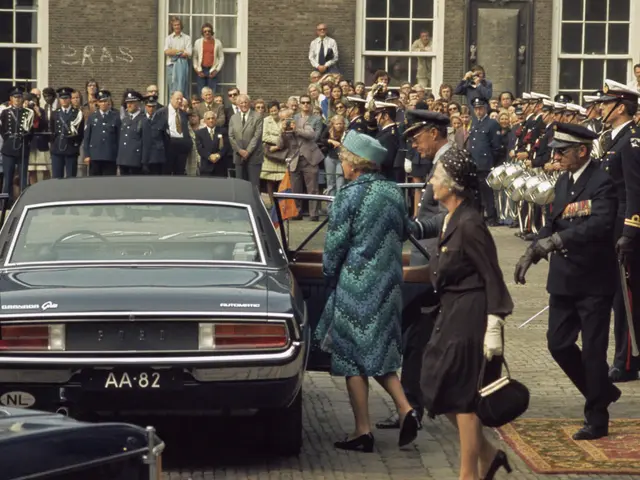The Navy's Successful Missile Test Amid Increasing Tensions
Tensions escalate between India and Pakistan as both countries conduct missile tests, with diplomatic relations worsening following the Pahalgam terrorist attack.
India and Pakistan have been locked in military and diplomatic standoffs this week, following the tragic Pahalgam terror attack. Both neighboring countries have responded by carrying out missile tests and announcing the suspension of crucial treaties, cancellation of visas, and the expulsion of diplomats.
The Navy made a significant move on Thursday, successfully test-firing a medium-range surface-to-air missile (MRSAM) from the INS Surat. This highly effective missile is designed to counter surface-to-surface missiles and aerial threats. The INS Surat, the final ship in the P15B Guided Missile Destroyer Project, boasts advanced weapon-sensor packages, network-centric capabilities, and ranks among the world's most sophisticated destroyers.
Clashes between the two nations escalated after a deadly attack in Kashmir on Wednesday left 26 dead and several injured. In response, India announced diplomatic sanctions, including closing the Attari-Wagah border crossing, suspending visas for Pakistani nationals, and suspending the Indus Water Treaty. mere hours later, Pakistan indicated plans for a surface-to-surface missile test in the Arabian Sea.
It's worth noting that thisation, Pakistan may have tested the Shaheen-III or Babur cruise missiles along its Karachi coastline on Thursday. These weapons possess the capability to reach several major Indian cities.
Background Information
India's Missile TestIndia's newest warship, the INS Surat, demonstrated its prowess by successfully intercepting a fast-moving target using the MRSAM in the Arabian Sea. Developed jointly with Israel, the MRSAM system boasts a 70-kilometer interception range and is designed to counter sea-skimming threats, showcasing advancements in indigenous defense capabilities.[3]
Pakistan's Missile TestPakistan notified the international community of a planned surface-to-surface missile test off its Karachi coast on April 24–25.[1][2][4] The test falls within Pakistan’s exclusive economic zone and is viewed as a strategic message amidst the rising tensions with India.[2][4]
Diplomatic EscalationThe missile tests followed a horrific terror attack in Pahalgam (Jammu and Kashmir) on April 24, where 27 tourists were brutally killed by terrorists linked to Pakistan-based Lashkar-e-Taiba.[1][2] In response, India:- Suspended the 1960 Indus Water Treaty- Closed the Attari Integrated Check Post- Halting Pakistani access to SAARC visas and capping diplomatic staff at 30 per country by May 1.[2][4]
Impact on Bilateral TiesThe missile tests indicate a hardening of military postures, with India focusing on defense readiness and Pakistan signaling a deterrent strategy.[1][3] Diplomatic measures by India represent a significant downgrade in bilateral engagement, reflecting heightened distrust following the Pahalgam attack.[2][4]
- The successful testing of the MRSAM missile by India demonstrates advancements in indigenous defense capabilities, a move that comes in response to increasing tensions with Pakistan.
- Pakistan's potential testing of the Shaheen-III or Babur cruise missiles along its Karachi coastline further confirms the hardening of military postures between the two nations.
- Amidst this standoff, both countries have taken diplomatic measures, such as the cancellation of visas and the suspension of crucial treaties, to demonstrate their resolve.
- The American football leagues, including the NFL and NCAA football, are prominent around the world, but this week's events in South Asia have shifted attention away from sports like football to geopolitical concerns.
- The market for finance and investments may be impacted by the tensions between India and Pakistan, as political instability can create uncertainty and potentially affect economic activities.
- As missile tests continue, the Gulf of Arabian Sea has become a significant focus on the global market, where the Missile Test has further fueled strategic maneuvers among the two neighboring countries.








